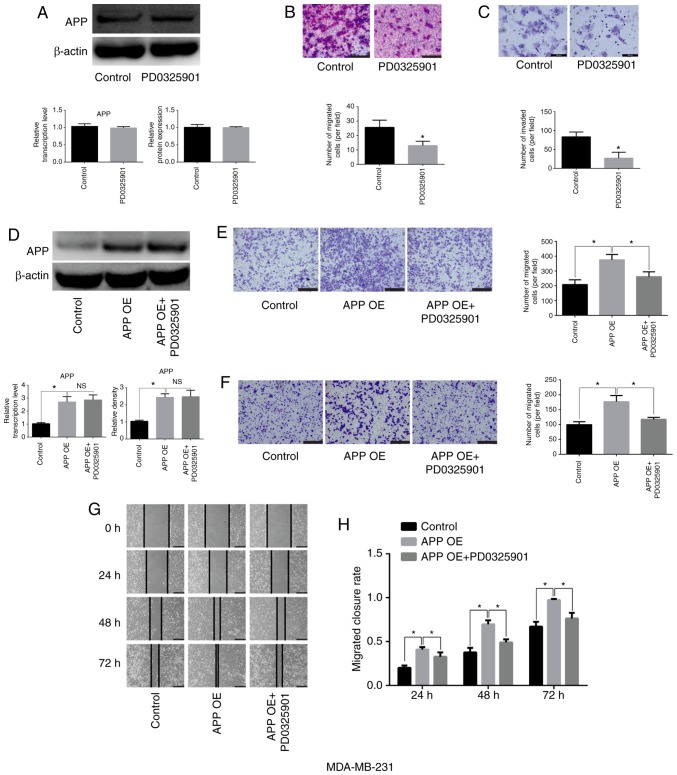Figure 5.
Effects of the MEK inhibitor PD0325901 on the expression level of APP and the migratory and invasive abilities of MDA-MB-231 breast cancer cells. (A) MEK inhibitor exerted no effect on the mRNA and protein expression levels of APP, as indicated by RT-qPCR and western blot analysis. (B) Representative staining images showing the effect of PD0325901 on the migratory ability of breast cancer cells and statistical analysis of the number of migrated cells. Magnification, ×200. Scale bar, 100 µm. (C) Representative staining images showing the effect of PD0325901 on the invasive ability of breast cancer cells and statistical analysis of the number of invaded cells. Magnification, ×400. Scale bar, 50 µm. (D) PD0325901 exerted no effect on APP-overexpressing MDA-MB-231 breast cancer cells. Following APP overexpression and treatment with the MEK inhibitor PD0325901, PD0325901 significantly reduced the migratory and invasive ability of breast cancer cells, as indicated by the (E) migration and (F) invasion assays. Scale bar, 200 µm. Magnification, ×100. (G) Representative gap closure assay images and (H) statistical analysis. Magnification, ×40. Scale bar, 250 µm. In total, five representative fields were randomly imaged and quantified for each well in the cell migration and invasion assays. All the experiments were performed in triplicate. Data are presented as the mean ± SD. *P<0.05. APP, amyloid precursor protein; MEK, mitogen-activated protein kinase kinase; OE, overexpression; RT-qPCR, reverse transcription-quantitative PCR; NS, not significant.

